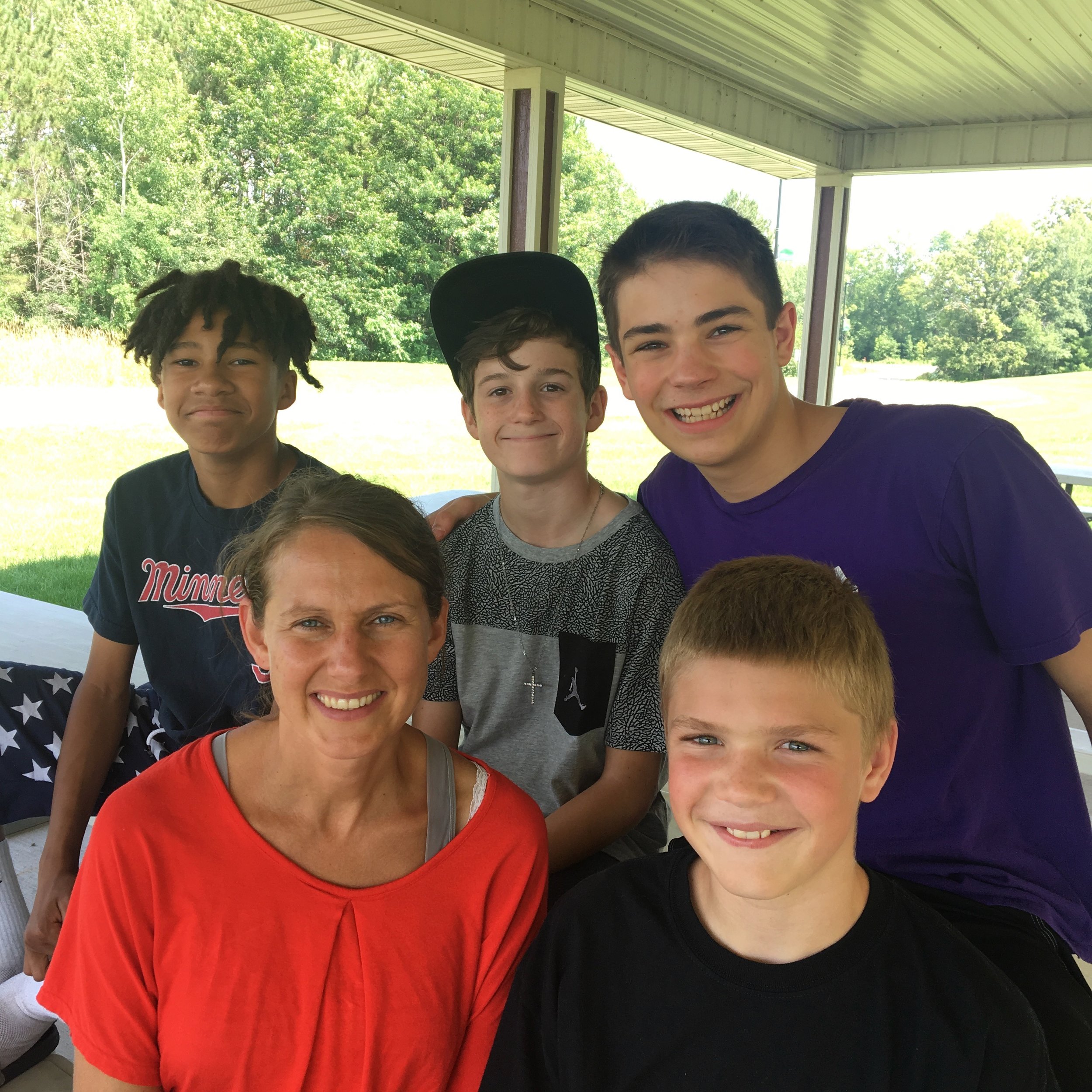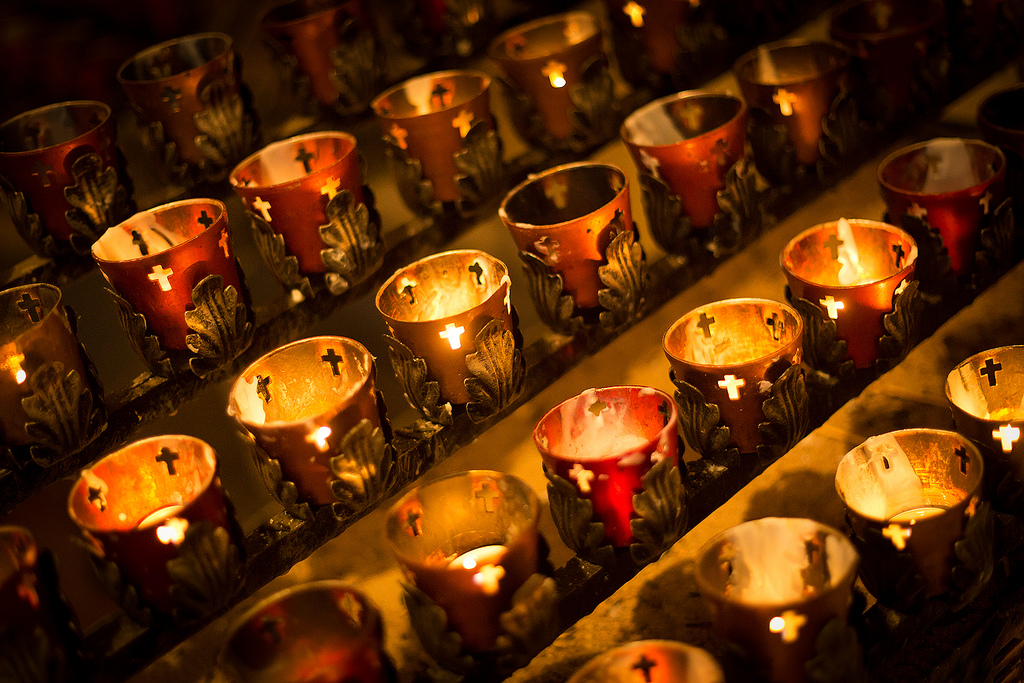Backstory
Early on in marriage, my wife Jill and I learned we wouldn’t be able to have kids of our own. With this in mind we discerned that God was inviting us to become foster and adoptive parents. Over three short years thirteen kids came through our home and four stayed forever.
Building a family this way has been the hardest and best part of being married.
But here’s the thing. Our boys’ birthparents chose life. And Jill and I are forever grateful. Thank you Jesus!
Their story and the fact that they made it here alive inspired me to make the video: “Are We Ready for the End of Roe v. Wade?” If Roe v. Wade is overturned, more and more kids from unplanned, even crisis pregnancies will be born into this world. Who will step up to generously love and support these moms, dads, and kids in need?
While there are literally millions of different ways to love and serve families in this situation, I am inviting pro-lifer’s everywhere to open their heart to the possibility of engaging this need as foster or adoptive parents.
This particular call isn’t for everyone, but I believe it is for many.
My sincere and prayerful hope is that through this simple video, God would plant the seeds of this call in the hearts and minds of hundreds, even thousands of people.
And breathe life into a revolution of care.
Frequently Asked Questions
Q: What are you trying to accomplish with this video? I created this video for two reasons. First, I want to spark conversation among pro-lifer’s around the question: “If Roe v. Wade is overturned, what more will need to be done to serve and advance the cause of life?” Second, I want the video to be an opportunity for pro-lifer’s to consider, perhaps for the first time, a call to be foster or adoptive parents. I can’t imagine a better place for foster or adoptive placements than a happy, healthy, and holy pro-life family.
Q: What did you mean when you said that infertility was a gift? That’s a good question. It was hard to decide whether or not I should include that line. Ultimately I thought the risk of turning off some and tuning out others (neither of which would ever be my goal), would be outweighed by the value of helping yet others look at this area of their marriage differently.
Infertility, reframed as an opportunity rather than an obstacle, has been an important part of our foster care and adoption story. It took many years for God to re-frame this cross in our hearts and minds; for him to reveal his deeper purposes, love, and provision through our inability to have kids of our own.
And, if it weren’t for infertility, there would be so many things that I love and hold dear that I never would have known or experienced; my four sons, extended years of worldwide mission in the early 2000s, growth and transformation in my relationship with God, deeper layers of insight related to who I am as a man, husband, and father, etc..
Rather than a perduring obstacle it has become a beautiful doorway to discover God’s incredible, unending love for me and my wife. So, in the truest sense of the word, it has become an irreplaceable gift.
Q: I’d like to learn more about becoming a foster or adoptive parent. What should I do next?
I would suggest two things.
First, talk with a foster or adoptive parent that you know, about their experience. This is something I wish my wife and I had done more of before we jumped in ourselves. We said ‘yes’ to foster care with great faith and hope and then figured out the details later (and it turns out the ‘reality’ of it all was really important). And before you meet or speak with someone about their personal experience prepare a list of questions to ensure the conversation is aimed at what you would really like to learn. Sometimes we foster/adoptive parents can ramble on about our experience and that isn’t always helpful. There is so much to process. :)
Second, I would take a look at the steps outlined on this webpage here. There is a lot of helpful information about the necessary steps to take to learn more about getting involved with adoption through foster-care.
Additionally, you might be interested in learning more about private or overseas adoption. Again, speaking with someone you know who has done either of those (private or overseas adoption) would be the best first step. And then asking them for further direction on which agency you could reach out to to learn more would be the best next step.
Q: As I learn more, how do I know if God is calling me to become a foster or adoptive parent (or both)? Through a combination of prayer, good counsel, and patient discernment, I believe God will make it very clear if this is His call for you.
First, through prayer, begin (or continue) a conversation with God that simply asks: “God, are you inviting us to become foster or adoptive parents?” As you have that conversation with God (and your spouse, of course), pay attention to the various ways God may want to communicate a response.
Second, through good counsel discuss your interests, desires, dreams, fears with a wise person that you trust. Allow them to ask you hard questions, to play ‘devil’s advocate’, and to speak truth into your life.
Finally, through patient discernment, take note of what is unfolding in front of you. Is a door opening or closing? Is it time now or later or not at all? Are your convictions growing or waning? If God is calling you to this there should be synergy between your desires, prayer, good counsel, and discernment. If there isn’t synergy among these areas (prayer, good counsel, and discernment) or there isn’t peace in your life about this decision, this may not be the right time.
Q: Are you planning to do more videos related to this topic? I’m not sure. At this point, I’m going to wait and see what kind of response this video generates and what topics / questions emerge that might warrant additional videos or blog posts. What sort of topics do you think would be good to address as a followup? If something comes to mind, send it my way through the contact form on the about page.
Q: Are you launching a particular initiative with the release of this video? My goal has not been to ‘start something’, but rather to ask questions and engage in conversations with friends and strangers alike concerning the place of foster care and adoption in the broader Pro-Life movement, as well as the possible implications, in the future, if access to abortion is significantly decreased.
Q: Is this video connected to a particular pro-life organization? No, it’s just me, my wife, and a trusty friend with a video camera. And while we are happy to personally support a few different pro-life organizations and a crisis pregnancy center locally, this video is not connected to any organization or non-profit.
Q: Who produced the video? Sacred Stories produced this video. You can find out more about them here. I think they did an outstanding job, but then again I’m pretty biased. *big grin emoji*








